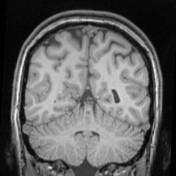At the recent Models for Change National Working Conference, experts declared that adolescent brain development should play a greater role in determining how youths are treated in the juvenile justice system.
Adolescent brain development has played an increasingly important role in juvenile justice in recent years. For example, the Supreme Court has noted in key decisions that juveniles’ brains are not fully developed, so youths are more susceptible than adults to peer pressure, more impulsive, more likely to take risks, less likely to consider long-term consequences and more amenable to rehabilitation.
Neuroscientist B.J. Casey, director of the Sackler Institute at the Weill Cornell Medical College, said:
Brain maturation doesn’t occur in isolation, but is all about adapting to the environment and developing based on the experiences that the individual has. And if you’re going to reach full adulthood, adolescence is a transient period where the child is learning how to be more reliant on himself in making judgments and decisions as opposed to parents. And without the opportunities and reinforcement of appropriate behaviors, they’ll really have difficulty in transitioning into that role.
Some notions of the U.S. juvenile justice system date to its origins in the 1890s, and are likely inappropriate today.
Panelist Richard Bonnie, director of the Institute of Law, Psychiatry and Public Policy at the University of Virginia, spoke of a 2012 National Research Council report he co-authored which concluded that the treatment of juvenile offenders should reflect knowledge about adolescent brain development. He said:
In the Supreme Court’s 1967 Gault decision, one of the criticisms of the juvenile justice system was that we had not delivered on the rehabilitative ideals and the promise of prevention and instead had fallen into punishment in fact, if not in law. The NRC report embraces fairness, so accountability is not just some alternative word to use for smuggling punishment into the juvenile justice system. Instead it is a way of understanding and holding a young person accountable for their behavior, to teach responsibility and promote successful law-abiding behavior as adults.
Adolescents are hyper-sensitive to whether they’re being treated fairly, so everyone in the juvenile justice system has to make a point of doing so.
Fairborz Pakseresht, who took over last year as director of the Oregon Youth Authority, said the juvenile justice system must adapt to advances in knowledge about adolescent development and base its policies on research and data. He stated:
We are emerging from a system that is based in old thinking. In the current mold, we think that you commit X crime and you get X number of years or months. And the question becomes whether that is the best way of dealing with our youth. The biggest challenge is changing our whole mindset and changing the function within our system and facilities.
Youths in the juvenile justice system can also be seen as victims. What we need to do in our system is not victimize them and further traumatize them. They’re going to become our neighbors.
Pakseresht said statistics showed that of the youths moved from the juvenile system to the adult Division of Corrections in Oregon, because of behavior, recidivism increased by 136 percent among them. When he received a list of six youths who facility personnel believed should be transferred to the DOC, Pakseresht denied the requests.
“The governor did not hire me to send them to DOC,” he said. “I am here to create better outcomes for communities, so we have to do the best for them.”
RELATED ARTICLES
















